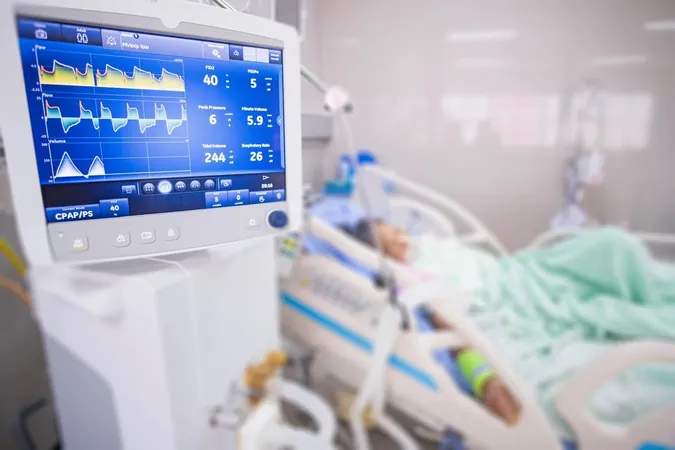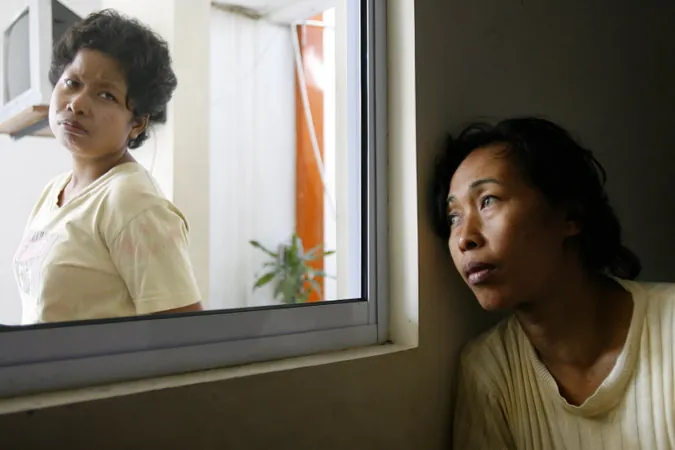
UK Launches Groundbreaking Trial to Uncover the Cancer-Fighting Powers of Red Grape Compound
2024-11-11
Author: Nur
UK Launches Groundbreaking Trial to Uncover the Cancer-Fighting Powers of Red Grape Compound
Red wine has long been lauded the world over for its perceived health benefits, with claims of heart protection and even increased longevity. However, much of that hype has been debunked by the scientific community. Yet, one component found in red wine has emerged with promising potential—resveratrol. This powerful compound, also present in red grapes, blueberries, and peanuts, is the focus of a major clinical trial aimed at preventing bowel cancer.
This week marks the launch of a pivotal study, termed the Colo-Prevent trial, which intends to explore whether low doses of resveratrol can deter the development of bowel cancer. The trial represents one of the most extensive examinations of cancer prevention drugs to date, targeting patients at high risk for the disease.
Prof. Karen Brown, a leading cancer researcher at the University of Leicester and principal investigator of the trial, stated, “With the Colo-Prevent trial, we are embarking on a unique experiment to see how drugs could stop bowel polyps from growing. This trial could have significant implications for how we prevent bowel cancer in people who are most likely to develop the disease as they get older.”
The groundwork for this trial has been laid over the past decade by Brown’s research team, who discovered that purified resveratrol can inhibit tumor growth in laboratory mice and can effectively reach the bowel in its unaltered form.
The Colo-Prevent trial will enroll individuals aged 50 to 73 who have participated in the NHS bowel screening program and have been diagnosed with bowel polyps—small abnormal growths that, while often benign, can progress to cancer if left untreated. Participants will have their polyps surgically removed and will receive either aspirin alone, or a combination of aspirin and metformin (a medication primarily used to treat diabetes) daily for three years.
In addition to the main study, a sub-study will involve participants taking purified resveratrol or a placebo for a year, to assess the compound's preventive effects. Notably, researchers emphasize that drinking red wine itself does not prevent cancer, and alcohol consumption is known to increase cancer risk.
Following the trial period, all participants will undergo a colonoscopy to evaluate any regrowth of polyps. Should the study yield positive results, the treatments assessed could potentially become part of the NHS bowel screening program, offering new preventative options to lessen the risk of bowel cancer.
Among the first participants is David Trusler, a 66-year-old from Market Harborough, who is motivated by a personal connection to the cause—his father succumbed to bowel cancer when Trusler was a teenager. Trusler, who successfully battled prostate cancer 11 years ago, has been under regular bowel cancer surveillance. After receiving an abnormal screening result in June, he was relieved to find that doctors didn’t discover any cancer, but two polyps were identified, raising his concerns anew.
“My first thought was, ‘Oh no, not again,’” he recalled. “I was really nervous about what they might find. I’m taking part in this trial for my dad, to give future generations the kind of treatments he never had.”
Prof. Brown emphasized that lifestyle changes play a crucial role in reducing bowel cancer risks, including quitting smoking, maintaining a healthy weight, and moderating alcohol and processed meat intake. “Screening has made great strides in detecting bowel cancers among those at elevated risk. However, we must do more to prevent these cancers from developing in the first place,” she stated.
Bowel cancer remains a significant public health challenge in the UK, ranking as the fourth most commonly diagnosed cancer, with around 44,000 new cases reported annually. It also stands as the second leading cause of cancer-related deaths in the country, underscoring the urgent need for innovative prevention strategies such as those being explored in the Colo-Prevent trial. Stay tuned to discover whether this trial could revolutionize bowel cancer prevention!


 Brasil (PT)
Brasil (PT)
 Canada (EN)
Canada (EN)
 Chile (ES)
Chile (ES)
 España (ES)
España (ES)
 France (FR)
France (FR)
 Hong Kong (EN)
Hong Kong (EN)
 Italia (IT)
Italia (IT)
 日本 (JA)
日本 (JA)
 Magyarország (HU)
Magyarország (HU)
 Norge (NO)
Norge (NO)
 Polska (PL)
Polska (PL)
 Schweiz (DE)
Schweiz (DE)
 Singapore (EN)
Singapore (EN)
 Sverige (SV)
Sverige (SV)
 Suomi (FI)
Suomi (FI)
 Türkiye (TR)
Türkiye (TR)